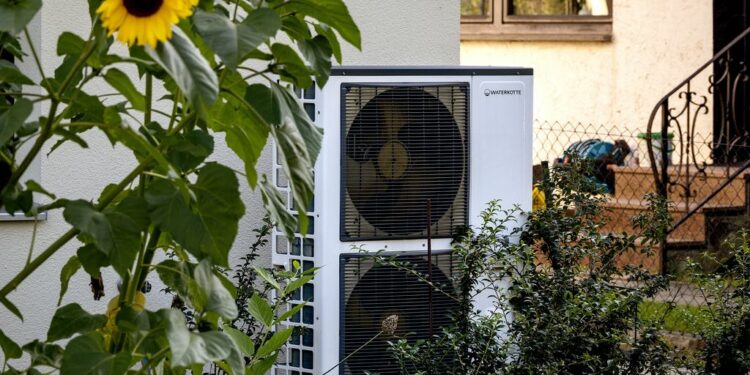Related
In those countries where electricity prices are several times higher than gas and heating oil prices, few people have switched to heat pumps.
This includes the UK for example, which has around 412 heat pumps per 100,000 people compared to a European average of 3,068 heat pumps per 100,000 people, according to Air Source Heat Pumps London.
Where electricity prices are at the most twice as high as gas and heating oil prices we see significant heat pump uptake, explains Rosenow. This is the case in Norway, Sweden, Finland and Estonia for example.
“In terms of the running costs, the electricity price must be no more than twice the price of gas,” Azau adds.
“Heat pumps are very energy efficient – about three to five times as efficient as gas boilers – but they do need a small amount of electricity.”
Which European countries have subsidies for installing heat pumps?
Different European countries offer financial incentives for heat pumps that include low-interest loans, grant programs and tax rebates.
These are key drivers in the uptake of the technology considering upfront expenses are, on average, two to four times higher than they would be for a gas boiler – usually around €11,500.
Azau adds that support schemes that have changed too quickly or unexpectedly are one of the reasons that heat pump sales have dipped recently – by as much as 47 per cent between the first half of 2023 and the first half of 2024.
“It is essential that a clear direction of travel is set by the EU and national governments through lasting, stable policies,” says Azau.
“This reassures both heat pump manufacturers and consumers. We look forward to seeing this in the planned measures from the new EU Commission, such as the electrification action plan and industrial decarbonisation accelerator act.”
Germany has some of the most generous subsidies for heat pump installation. Landowners can get a grant of up to €18,000 if they buy a ground source heat pump and up to €15,000 for an air source heat pump for an existing property.
France follows close behind with homeowners eligible for grants of up to €15,000 if they buy a ground source heat pump and up to €9,000 for an air source heat pump for an existing property.
In October 2023, the British government increased heat pump grants by 50 per cent, from £5,000 (€5,795) to £7,500 (€8,692).
The full list of grants available in European countries is listed here.
‘Policy makers have a responsibility to provide people with robust information’
While heat pumps are now the default heating technology in many Nordic countries, in less mature markets they have been met with a degree of scepticism by consumers, Rosenow explains.
He says this is often fuelled by misinformation from the incumbent fossil fuel heating industry.
“In Germany, the heating law resulted in a very polarised debate about heat pumps last year with consumers being uncertain which way to go,” he says.
Related
“Policymakers have a responsibility to provide people with robust and independent information on heat pumps.”
To increase heat pump uptake, Rosenow says that an effective policy mix is the main prerequisite.
This includes “getting energy prices right so that the running costs of heat pumps are lower than fossil fuel alternatives, providing financial support to deal with the upfront cost, regulation to prevent new fossil fuel heating systems from being installed in new and also increasingly existing buildings and good coordination and communication,” Rosewood says.
Source link : http://www.bing.com/news/apiclick.aspx?ref=FexRss&aid=&tid=6754816f1b2648dfbaf9ca1fb465ca75&url=https%3A%2F%2Fuk.news.yahoo.com%2Fheat-pumps-booming-norway-sweden-090853467.html&c=13371303086929698829&mkt=de-de
Author :
Publish date : 2024-12-06 20:08:00
Copyright for syndicated content belongs to the linked Source.


